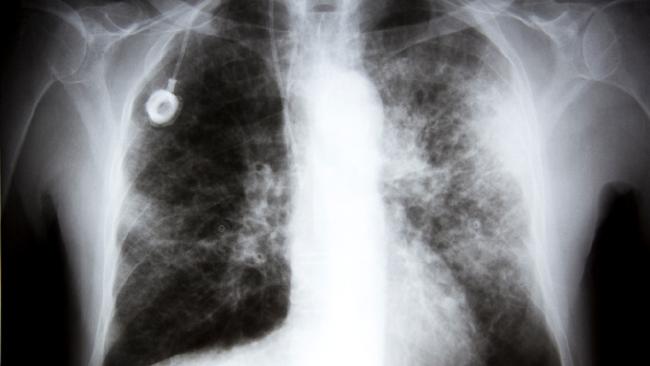
There’s new hope for lung cancer suffers and those at risk of developing the disease.
Melbourne researchers have discovered a breakthrough new drug that could potentially stop lung cancer or emphysema as well as detecting the disease before it spreads through the body.
The life-saving discovery was made by researchers from Melbourne’s Hudson Institute of Medical Science who identified an inflammation-causing molecule that triggers the disease.
The drug, which is currently undergoing clinical human trials to fight inflammatory bowel disease in Europe, appears to shut down the signalling system responsible for developing lung cells.
The breakthrough discovery offers hope to the 15,000 Australians who die of lung cancer each year.
Blood tests have already been developed to help researchers unlock ways to detect the molecule Interleukin 6 or II-6, which is linked to the diseases.
Lead researcher Professor Brendan Jenkins said screening may one day be able to detect the disease before the danger is “switched on”.
“The beauty of the two studies we have done is that we have shown that yes, the molecule is increased in the blood and tissue biopsies, but importantly we have shown that if you target Il-6 and block it you will see a suppression of disease in both lung cancer and emphysema,” Prof Jenkins said.
“Importantly, we have now identified the way of targeting Il-6.”
The experimental drug donned ‘sgp130FC’ has shown promising signs during animal trials, in terms of stemming the signalling process in lung cancer and emphysema.
The drug is designed to bind to the II-6 molecule which in turn blocks the molecule from attaching itself to lung cells.
It therefore can’t pass on signals to grow or self-destruct.
“You see a dramatic reduction in the amount of tumours forming — they just don’t seem to grow anywhere near as well as the tumours would if sgp130Fc was not there,” Prof Jenkins said.
“It is very effective at blocking and retarding the growth of these tumours.
“The more amazing thing is that if you treat an animal just before they would normally start to develop emphysema, the mice just don’t develop the disease at all.
“It blocks it completely and there is no emphysema at all.”
Researchers are now working to further develop the blood test for both diseases.
